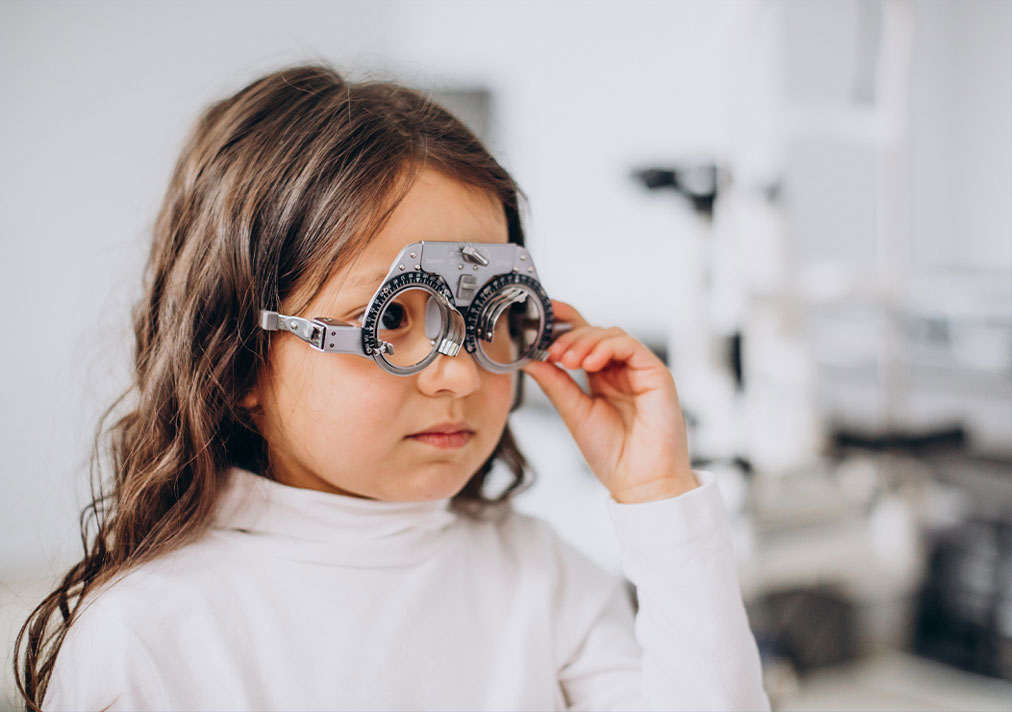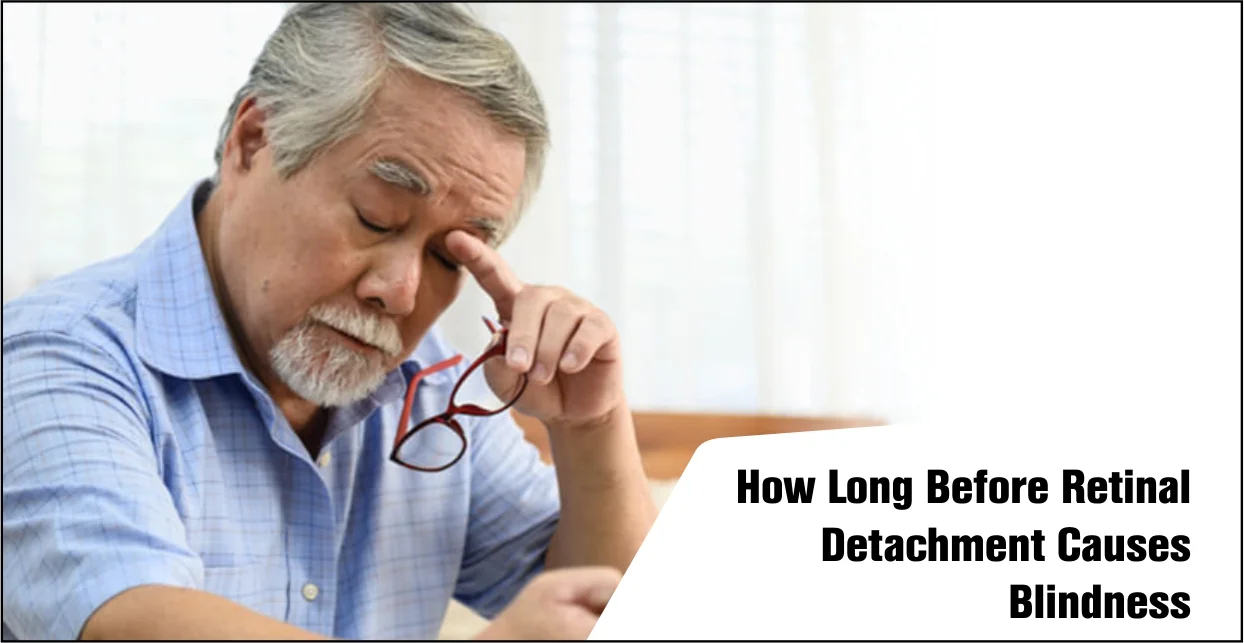Retinal detachment is a medical emergency that has to be treated right away. The retina, a tiny layer of tissue at the back of the eye that processes light, sustains this injury as it pushes away from its natural position.
You might lose vision in the afflicted eye if nothing is done. It is for this reason that you need to start therapy right away.
The risks of retinal detachment leading to blindness, whether treatment may restore vision, and how long before retinal detachment causes blindness are all covered in this article. We also discuss what to avoid and warning signals.
Understanding Retinal Detachment
Many people may wonder how long before retinal detachment causes blindness. Firstly, let us try to understand the issue of retinal detachment better. Suppose, following a retinal tear, that the retina starts to migrate or separate from the back of the eye. When that happens, the retina will no longer be able to process light or send nerve impulses correctly, which will result in distorted visual imaging. A patient may experience impaired vision, bright flashes, floaters in the eye, diminished peripheral vision, and the appearance of a curtain or shadow limiting their field of vision as early signs of retinal detachment.
How Painful Is Retinal Detachment?
Retinal detachment does not cause discomfort. Since many people have no symptoms at all, they are unaware of the warning indications of retinal detachment until they manifest.
It is crucial to identify the symptoms of retinal detachment because of this. They can notify you when something is amiss in your eye so you can get help before there’s more harm done.
Warning Signs Of Retinal Detachment
A detached retina’s initial symptoms include:
- New floaters: These seem to float across your field of vision as tiny black dots or squiggly lines. A detached retina may be the cause of an increase in floaters that you notice all of a sudden.
- Light flashes: Some patients with detached retinas experience unexpected light flashes. These often resemble what it looks like to see stars after being struck in the eye.
- A curtain or shade blocking your view: This might begin as a dim side shadow and progressively move towards the center. It is frequently compared to having a curtain drawn over your range of vision.
- Blurred vision: Retinal detachment may also be indicated by a decrease in visual clarity that makes it difficult to focus on a person or object.
The Likelihood Of Retinal Detachment Leading To Blindness
A detached retina can cause blindness, and the possibility of this happening soon is quite significant. Your retina is a vital component of your eye, so when it separates, it’s an emergency that has to be treated right once.
However, the chance of developing blindness from retinal detachment is minimal if you receive treatment right once.
How Long Before Retinal Detachment Causes Blindness
The speed at which one might lose their vision varies. Many eye specialists concur that retinal detachment may cause permanent blindness, but the timeline of how long before retinal detachment causes blindness, and how quickly it occurs, is hard to ascertain.
Within a few days or even hours following the detachment, people may lose their sight. Numerous variables may be involved, such as the surrounding environment, the precise location of the retinal detachment, and the presence of activities that exacerbate the detachment.
To lessen the likelihood of permanently losing vision, it is recommended for those who are having symptoms to get treatment as soon as possible. The only proven way to repair a detached retina is to have a skilled ophthalmologist surgically reattach it, given that a medical emergency exists. If they’re not open, visit the closest emergency department.
Can Treatments Restore Vision Lost Due To Retinal Detachment?
It varies. Usually, a surgeon can assist in restoring vision with timely care. For instance, following treatment, your hazy vision may gradually become better.
However, there is a greater likelihood of irreversible vision loss and a harder time reattaching the retina the longer you wait before seeking treatment. You have a greater risk of your vision not fully recovering if the retina’s macula becomes detached. The area of your eye that processes what is directly in front of you, or your central vision, is called the macula, which is a component of the retina.
Precautions To Take In Retinal Detachment
- Don’t ignore the symptoms: Get medical attention right away if you experience any of the following: floating, flashes of light, or shadows in your vision.
- Avoid demanding activities: Heavy lifting and strong head motions are two activities that might put more strain on the eye and perhaps exacerbate the separation.
- Take prescription drugs as instructed by your doctor: If your doctor has prescribed any, don’t forget to take them.
- Refrain from rubbing your eyes: This may result in further damage and raise the pressure on the retina.
- Don’t put off surgery: You must get therapy or surgery as soon as you are diagnosed with retinal detachment.
How Eye-Q Eye Care Hospitals Can Help
If you want to learn more about ‘how long before retinal detachment causes blindness,’ contact eyecare experts at Eye-Q Eye Care Hospital. Our team of experts provides efficient and timely service, ensuring customized attention to meet your unique requirements. To preserve your eyesight, we place a high priority on early detection and preventative interventions.
Eye-Q Eye Care Hospital is committed to protecting your vision and enhancing your quality of life via the use of cutting-edge technology and a caring attitude. Don’t wait until it’s too late; contact Eye-Q Eye Care Hospital for extensive retinal treatment and take proactive actions to preserve your eyesight now.
Conclusion
To avoid irreparable vision loss, retinal detachment is a dangerous condition that has to be treated very well. Knowing ‘how long before retinal detachment causes blindness‘ emphasizes how important it is to get medical attention as soon as possible. Maintaining your vision requires prompt diagnosis and treatment. For the best possible result for your eyesight and general eye health, see an eye care professional as soon as you start experiencing symptoms.




